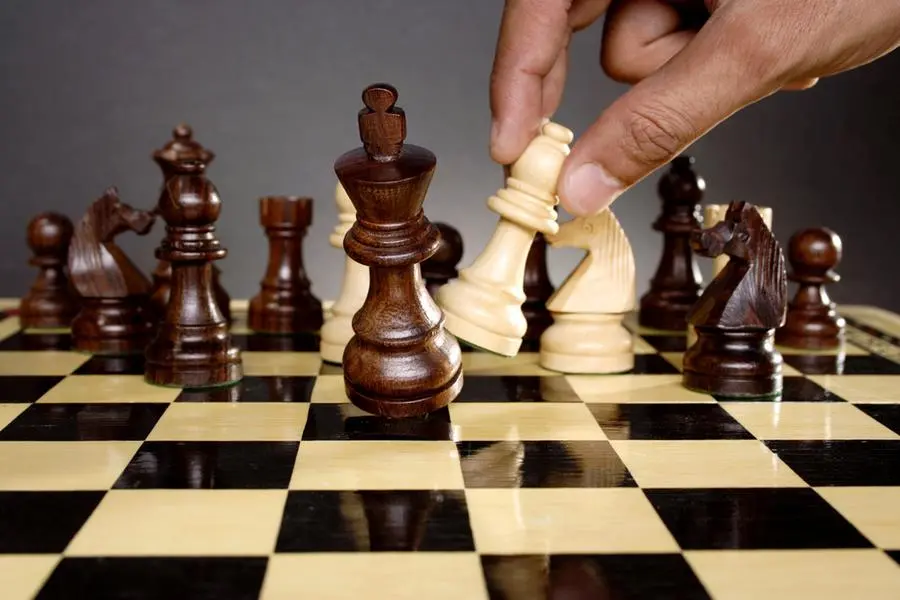Russia’s Chess Team Faces Ongoing International Ban
3 min read

The chess team from Russia will remain excluded from international competitions, as confirmed by officials during a recent general assembly of the International Chess Federation (FIDE) in Budapest. In a decisive move, delegates voted to uphold the sanctions against Russia and its ally, Belarus, which were imposed following Russia’s invasion of Ukraine in February 2022.
Supporters of the ban argue that chess in Russia is heavily influenced by the government, with key figures such as Kremlin spokesman Dmitry Peskov serving on the board that governs chess domestically. Although there was a majority consensus in Budapest to consult with the International Olympic Committee (IOC) about potentially easing restrictions for children and vulnerable groups, the ban on the Russian national team, as well as prohibitions against its flag and anthem in international events, will continue.
The ultimate decision about the sanctions lies with FIDE’s strategic body, the FIDE Council, which is expected to uphold the assembly’s decision. Malcolm Pein, head of the English Chess Federation, described the outcome as a “crushing defeat” for Russia, noting that many delegates were likely concerned about the implications for FIDE’s relationship with the IOC if they diverged from the current policy.
A total of 66 countries supported the continuation of the ban, while 41 voted for a third option to maintain all restrictions. Only 21 nations, including Russia, Belarus, and several former Soviet republics as well as allies from Africa and Asia, voted to lift the sanctions. The vote was viewed as a crucial test of Western unity in maintaining pressure on Russia across cultural, sporting, and diplomatic arenas.
Prior to the vote, the Ukrainian delegation urged members to reject any proposal to lift the sanctions. Viktor Kapustin from the Ukrainian Chess Federation expressed satisfaction with the outcome, stating, “It’s a victory for Ukraine. This vote shows that Russia does not have the support they assumed.” He emphasized the importance of punishing the aggressor in all spheres, including sports, and urged for the continuation or even strengthening of sanctions against Russia.
In response, Russian officials insisted that politics should not interfere with chess and called on delegates to vote for the removal of sanctions. Ukraine’s stance received widespread support from Western nations, including England, Scotland, Wales, the United States, and France. The IOC, with which FIDE is affiliated, had also recommended that FIDE adhere to prior decisions mandating the continuation of sanctions against Russia in sports.
Following the onset of Russia’s full-scale invasion in 2022, FIDE had already banned the Russian national team and its officials from participating in competitions. Additionally, a FIDE commission imposed sanctions on the Russian Chess Federation (CFR) last June, barring it for two years for “bringing chess into disrepute” and breaching the organization’s principles. The commission condemned the CFR for organizing tournaments in territories of Ukraine that were illegally occupied by Russian forces and reprimanded the Russian president of FIDE for his role on the CFR board.
Earlier this month, the CFR’s two-year ban was reduced to a €45,000 (£37,700) fine, and the reprimand was rescinded, a move that drew criticism from Ukraine and its allies. Notably, individuals such as ex-defence minister Sergei Shoigu and Kremlin spokesman Dmitry Peskov, both under international sanctions, are also board members of the CFR.
As the chess community continues to grapple with the political ramifications of the ongoing conflict in Ukraine, the recent vote serves as a stark reminder of the broader consequences that sports organizations face when navigating geopolitical tensions. With the sanctions against Russia upheld, FIDE demonstrates a commitment to maintaining integrity and accountability within the global chess arena. The implications of this decision will likely resonate throughout the sport as nations reassess their alliances and responses to the ongoing conflict.